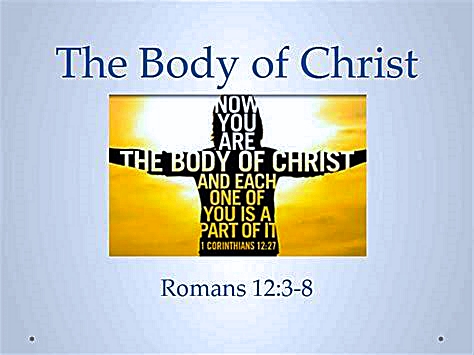Body Ministry – BT3: Elders, Bishop-Overseers, and Shepherd-Pastors are the SAME group

Body Ministry – BT3: Elders, Bishop-Overseers, and Shepherd-Pastors are the SAME group
Please follow the BLOG Etiquette to stay on topic and pass the moderator’s check. Bold, underlined text below = future links to the BLOG pages.
The term “bishop” comes from the Greek noun episcope that commonly means “visitation, investigation, or inspection of troops” (a). Peter uses it in Acts 1:20 citing Psalms 109:8 in the Greek LXX for “a place of leadership” (NIV), “position of responsibility” (NET), “office” (NASB), “post” (MSG), or “bishopric” (KJV) regarding the replacement of the apostle Judas after he hung himself. Again, the religion of special people, positions, offices, and titles is often seen in many bible translations. How very sad! The term “bishop” was created in 1800’s Old English for “a senior member of the Christian clergy, typically in charge of a diocese and empowered to confer holy orders.” Another “tradition of men!” Why is the modern church “borrowing” from the Old Testament (Psalms 109:8) when the New Covenant Ways are completely different-in-kind by definition (b) – this is part of The Great Wall quenching the Holy Spirit in the Church. <Notes> a) Luke 19:44, 1 Peter 2:12, b) chadash, kainos: fresh, completely different-in-kind, unprecedented, sharing nothing with its predecessors, unique, and superior.
The Greek word episcope can also mean “responsibility, charge or function of an elder who looks into/over others, thus a superintendent.” This is what the apostles were to be doing, and whoever they chose to replace Judas would be doing. The corresponding OT Hebrew pyquddah generally means “visitation, inspection of troops, oversight, custody, or care of” like Psalms 109:8 above, but can also mean “having charge over,” even though Brown-Dryer-Brigg suggests that in this regard it refers to “charge over one’s possessions.” The only other place episcope is used is by Paul is in 1 Timothy 3:1-2 where he says: “If a man reaches out for episope he desires a good work. The episkopos (overseer) must be above reproach, husband of one wife, temperate, self-controlled, respectable, hospitable, apt/skillful in teaching, not a drunkard, not violent but gentle, not quarrelsome, not a lover of money” (a). We know from 1 Peter 2:25 that the shepherd (b) and episkopos overseer were the same person – caring/shepherding for the flock, so to speak, by simply sitting on a hill watching over the sheep/flock. <Notes> a) “Lord’s servant … teaching” 2 Timothy 2:24, b) poimen.
Regardless of the flawed doctrines of many churches, these episkopos overseers are simply “presbuteros elders (a) . . . above reproach, the husband of one wife, his children believers who are not open to debauchery or insubordination. It behooves the episkopos overseer, (b) as God’s steward, to be above reproach, not be arrogant, quick-tempered, drunkard, violent, greedy for gain, hospitable, lover of good, self-controlled, upright, holy, and disciplined . . . holding firm to the trustworthy logos gospel message (c) as has been taught, so that he may be able to give alongside-counselling, advising, encouraging, comforting (d) by/with sound/healthy teaching and/coupled to correct/refute the gainsayers (e)” (f). <Notes> a) presbuteros: older in The trusting-relying-Faith b) episkopos, c) logos, d) parakaleo, e) those who speak against the trustworthy message, f) Titus 1:5-9.
Elders, bishop-overseers, and pastors are the same group of people! Acts 20:17-28 tells the “presbuteros elders (a) of the church of Ephesus who came to Paul in Miletus . . . Pay careful attention (b) to yourselves and to all the flock [like a shepherd], in which the Holy Spirit has episkopeo made you overseers (d) to poimaino shepherd (c) the church of God.” Also 1 Peter 5:1-2 says: “I urge the presbuteros elders (a) among you, who I am also an presbuteros elder (a) , . . .poimaino shepherd (c) the flock of God among you, episkopeo overseeing (d) them, not by constraint but voluntarily, not for gain but willingly” – see Donations page concerning paid ministry. <Notes> a) presbuteros, b) pros + echo: hold toward/near is a description of overseeing c) poimaino is the common verb form, the noun is used only once of Christians, d) episkopeo: the verb overseeing – Hebrews 12:15.
Paul simply divides the Church into 3 groups: “all the saints, bishop-overseers, and deacons” (a). Yep, you have equippers, saints, and servers! Sounds like Ephesians 4:12 and many other passages of Paul’s! But as we’ve seen above the “bishop-overseers” are the elders, who are also the shepherds, so Paul could have said “all the saints, bishop-overseers/elders/shepherds, and deacons.” Paul ONLY “set in front” or “set in place” (b) of the rest of the Church, the elders in every church (c), which obviously then are the “bishop-overseers/shepherds-teachers!” <Notes> a) Philippians 1:1, b) histemi or tithemi – see Coaches and Facilitators, c) Titus 1:5; Acts 14:23.
This same group Paul describes as: “God’s servants who are apt/skilled to teach” (a). They are the “overseers who are apt/skilled to teach” (b) who Paul encourages Christians to “let the elders that keep standing before [you] to maintain care [of you] (c) well be counted worthy of double honor, chiefly those laboring wearily by the means of the logos gospel message (d) and/coupled are teaching [it]” (e) – see Donations page for supporting ministry. <Notes> a) 2 Timothy 2:24 – see Coaches and Facilitators and Teach One Another, b) 1 Timothy 3:1-2, c) proistemi – see Coaches and Facilitators, d) logos, e) 1 Timothy 5:17.
We also knows from Ephesians 4:11 that the equipping function of the poimen shepherd grace-gift to the Church from Christ “for the saints to actually do the work of the ministry so that the Body-of-Christ may be build up” – not the shepherd – in the Greek structure: “tous-the apostles, de-moreover tous-the prophets, de-moreover tous-the evangelists, de-moreover tous-the poimenas-shepherds kai-and/coupled didaskalous–teachers” couples together “moreover the shepherds and/also teachers” all after 1 “de-moreover tous-the” connector phrase, thus meaning “shepherds who are also teachers” – just as the above passages say are the qualifications of the elder/bishops-overseers/shepherds group. It is incorrect to speak of a “5-fold ministry” because there are only 4 groups and they are not the “ministers doing the ministry,” because the “saints do the work of the ministry.” The 4 groups are only “equippers” – coaches and facilitators! The modern church has simply not followed the NT model for church structure at all, that’s because they either don’t know their bible from the original languages or more likely prefer “the traditions of men.” See Note ‘C’ of Tongues & Interpretation – BT4.
Spiritual Education, Body Ministry, Church leadership equippers, Equippers are coaches and facilitators, Elders Bishops Overseers Shepherds Pastors are same Group, Episcopal, Presbyterian, The saints are supposed to be ministers NOT the equippers, There is no 5-fold ministry but 4-fold equippers


